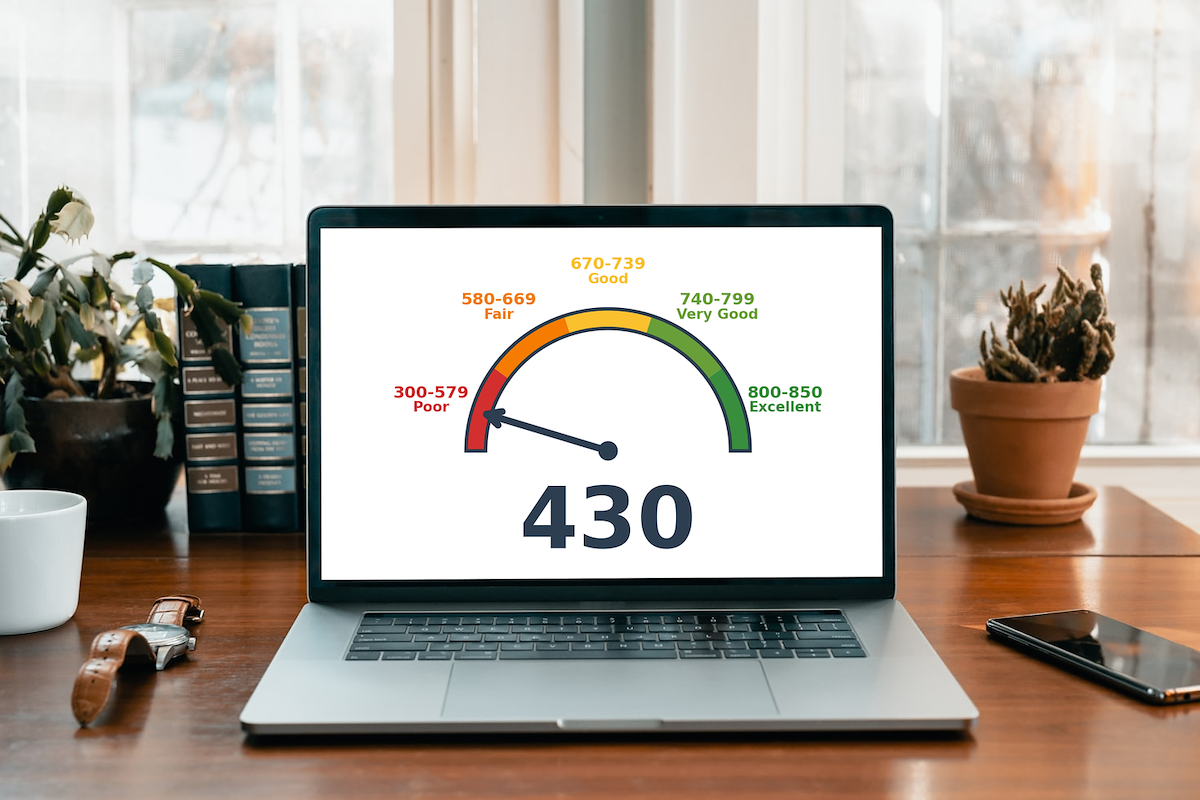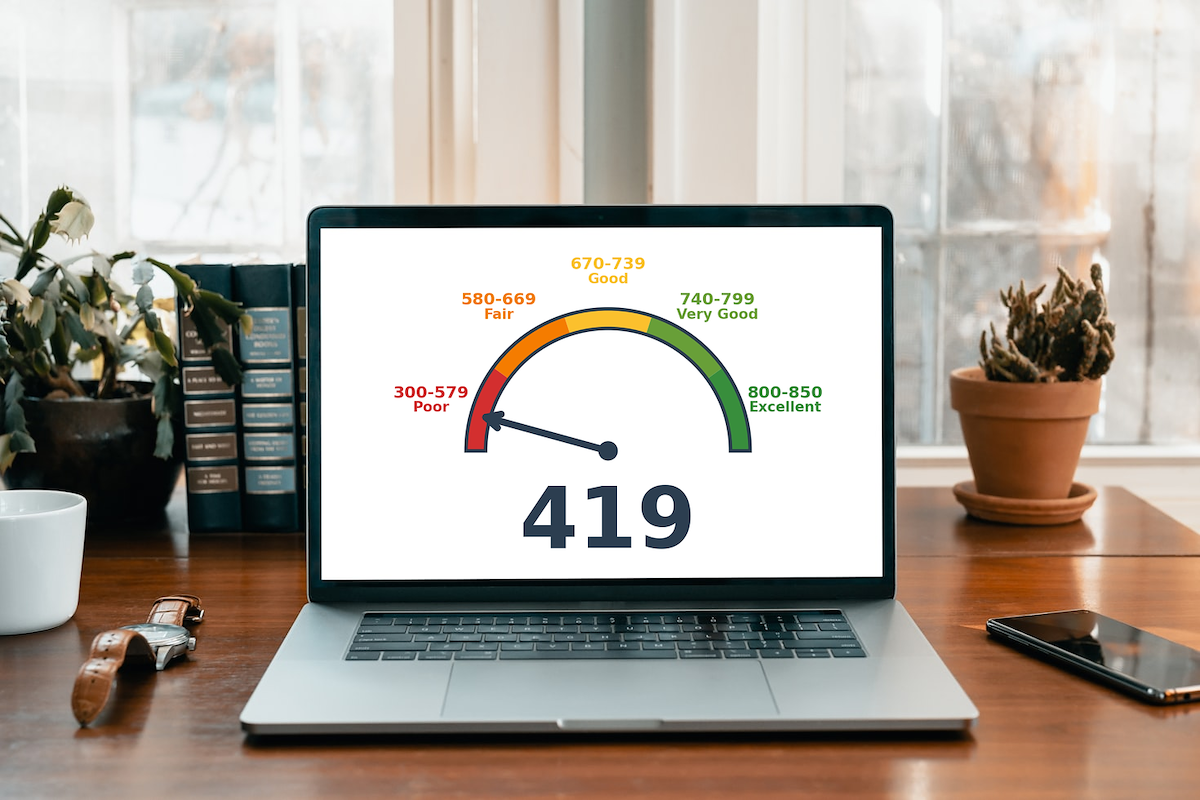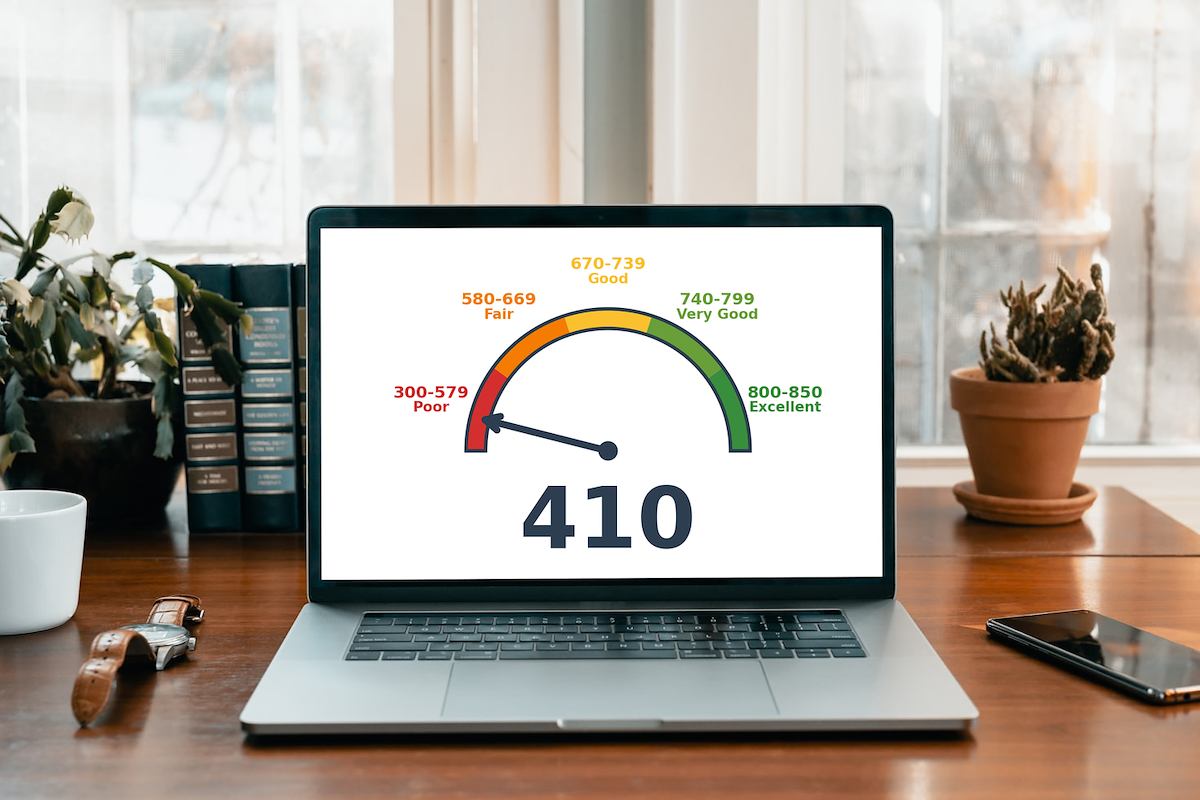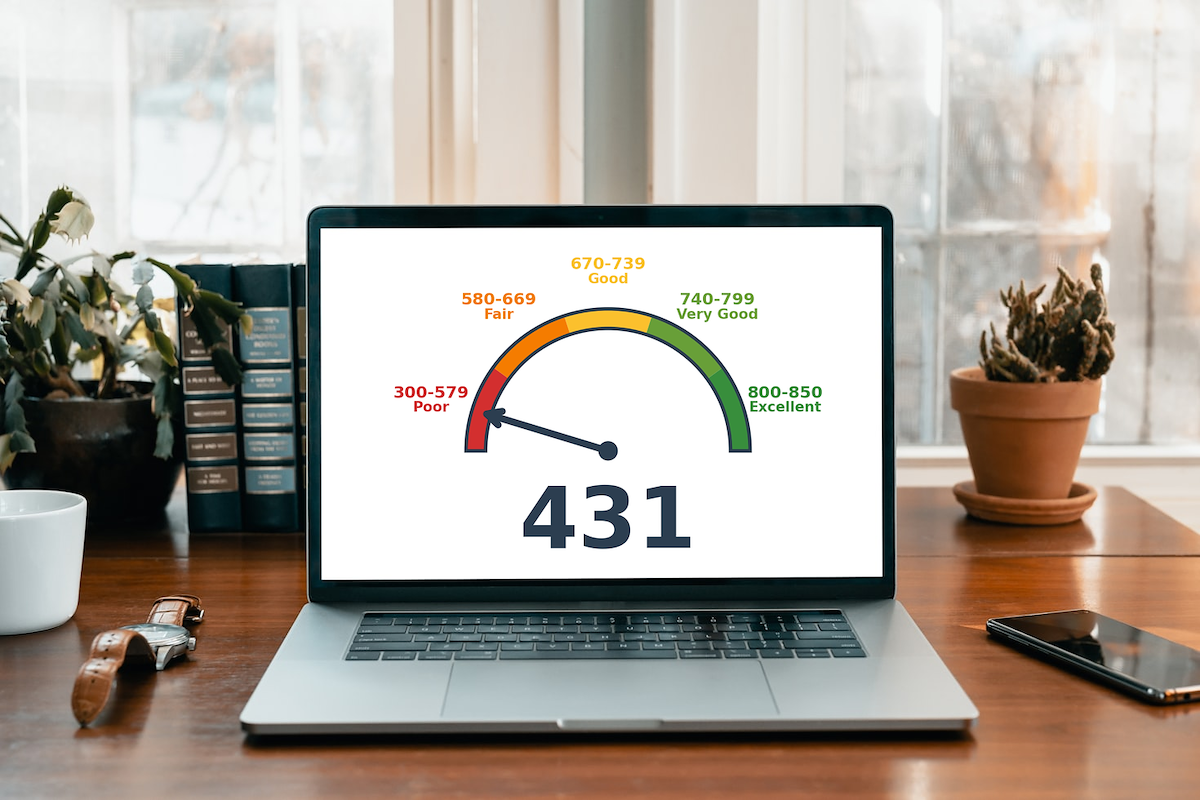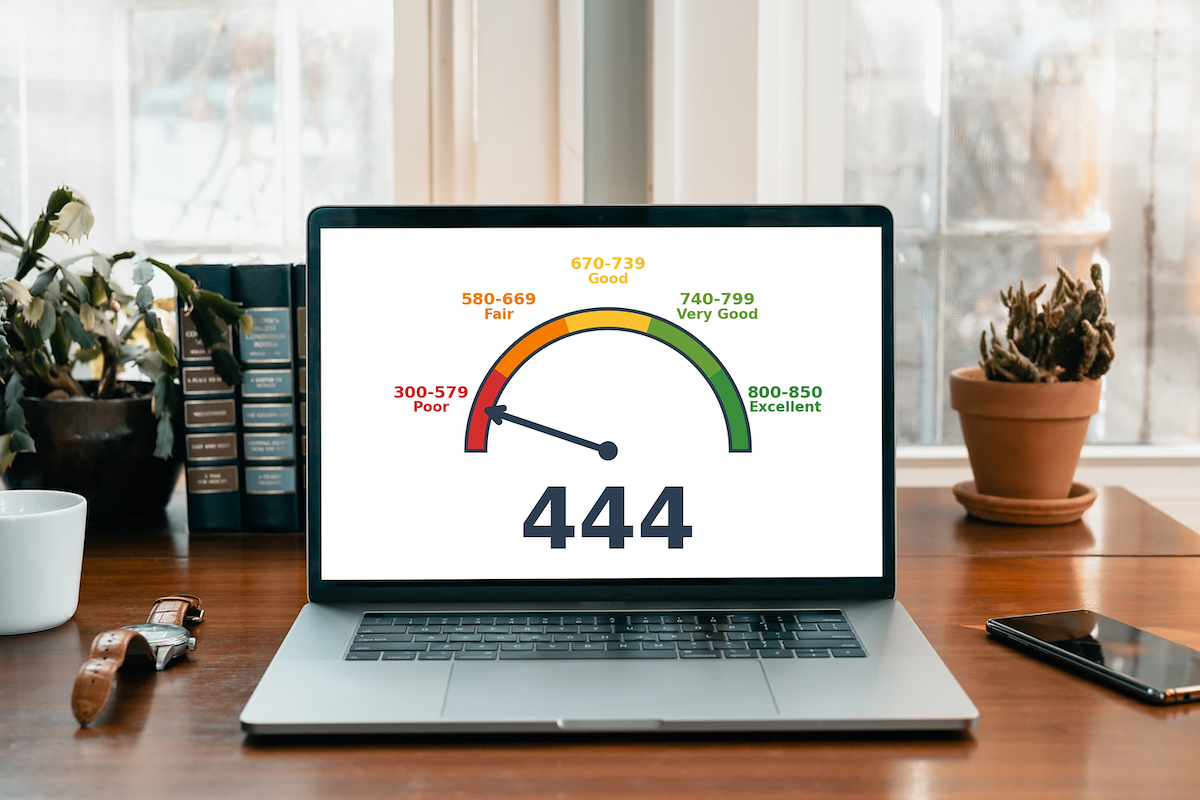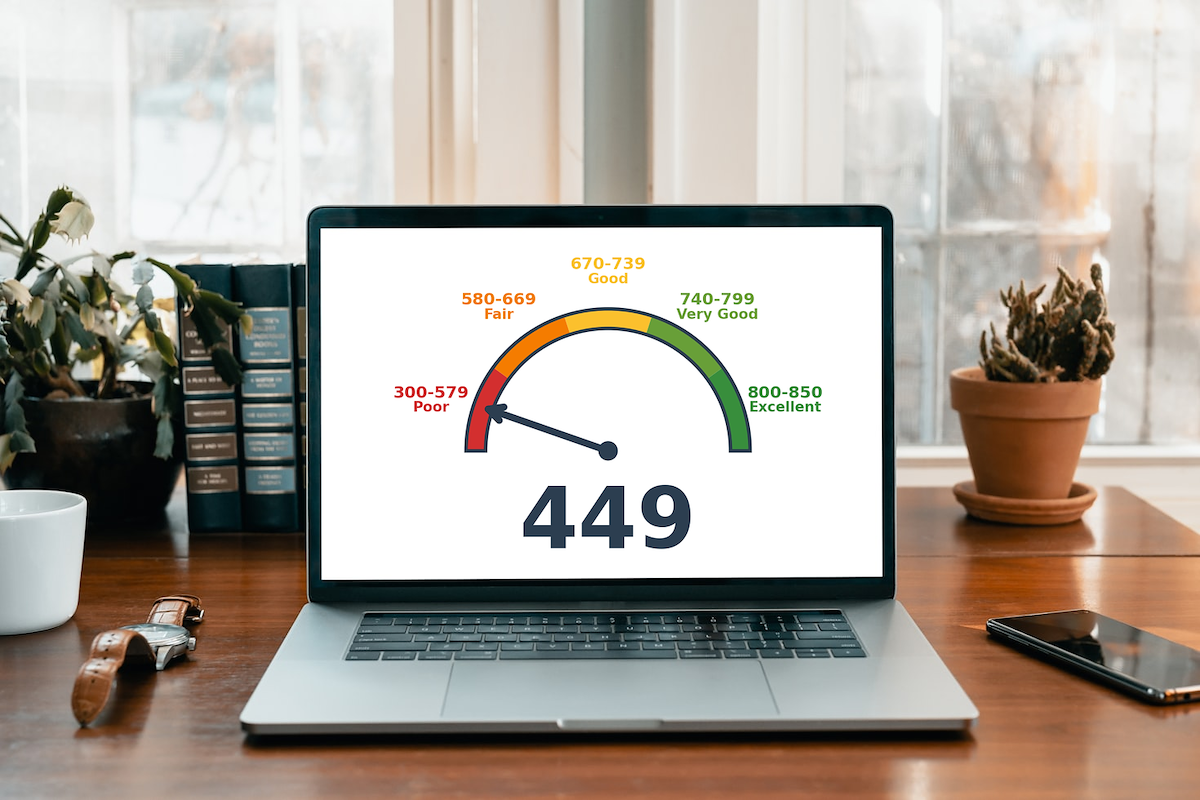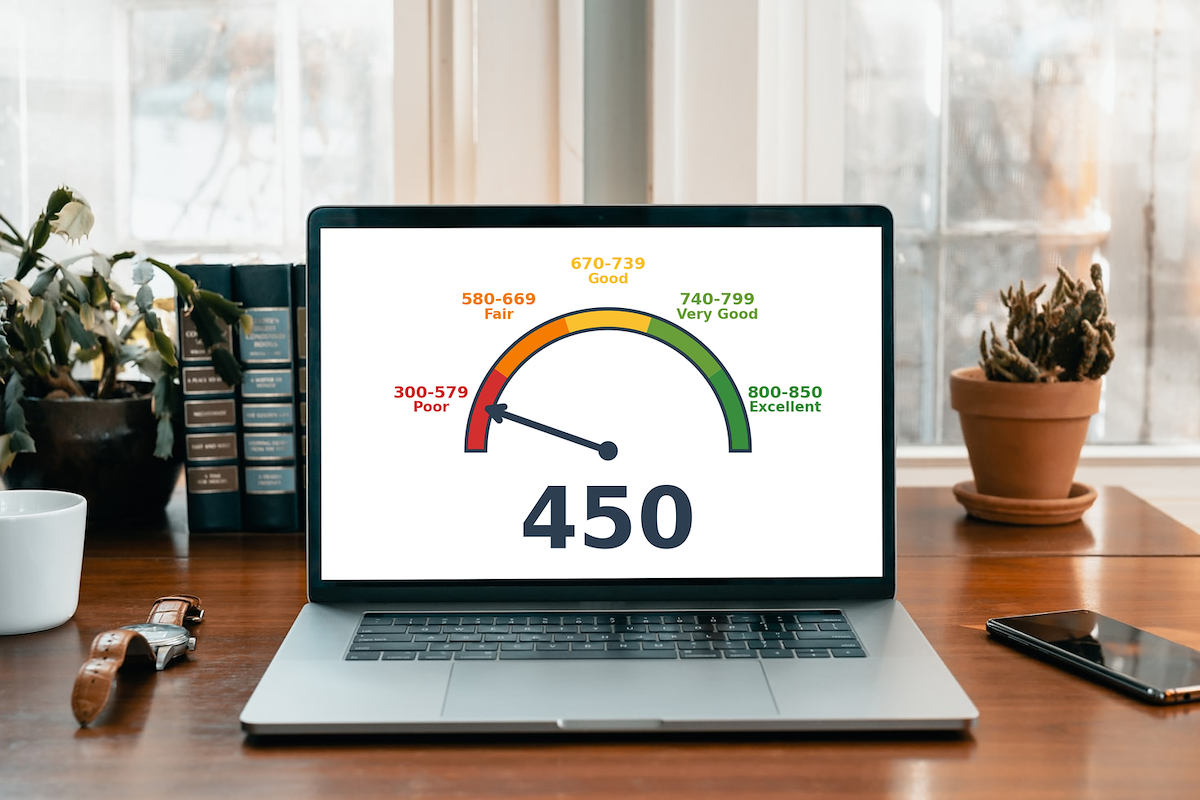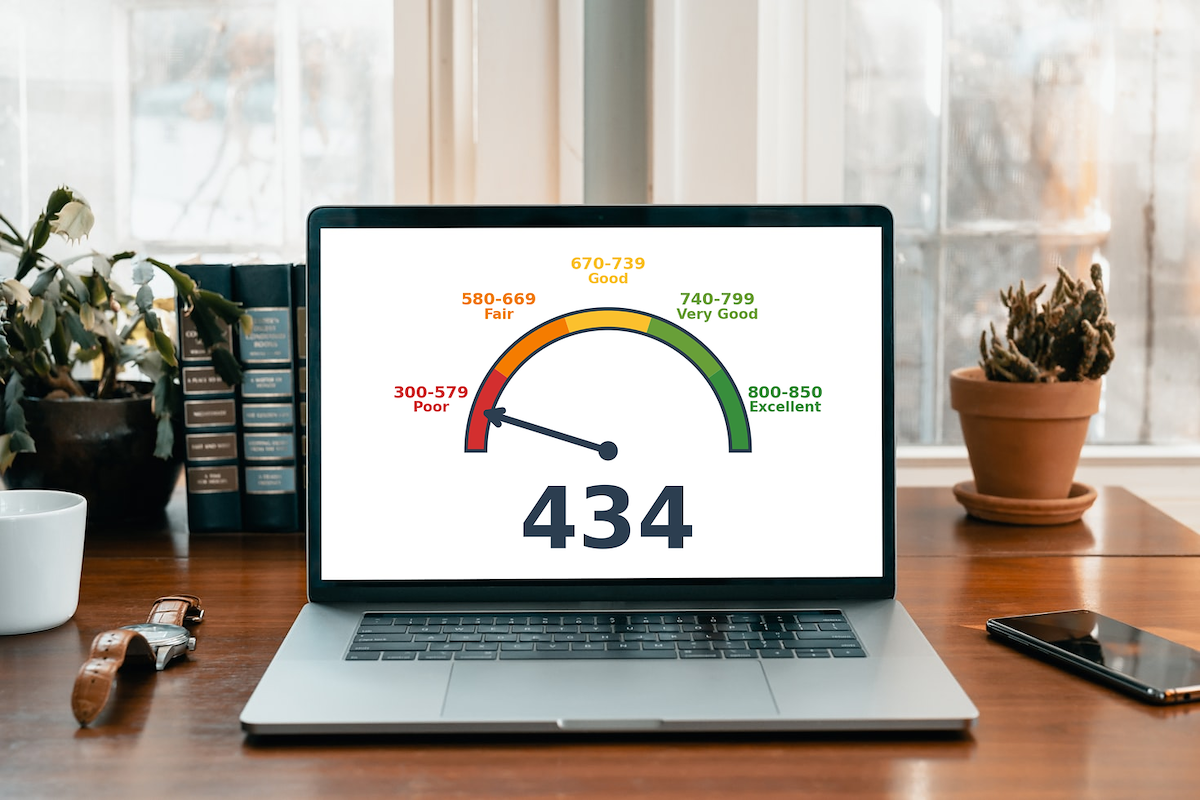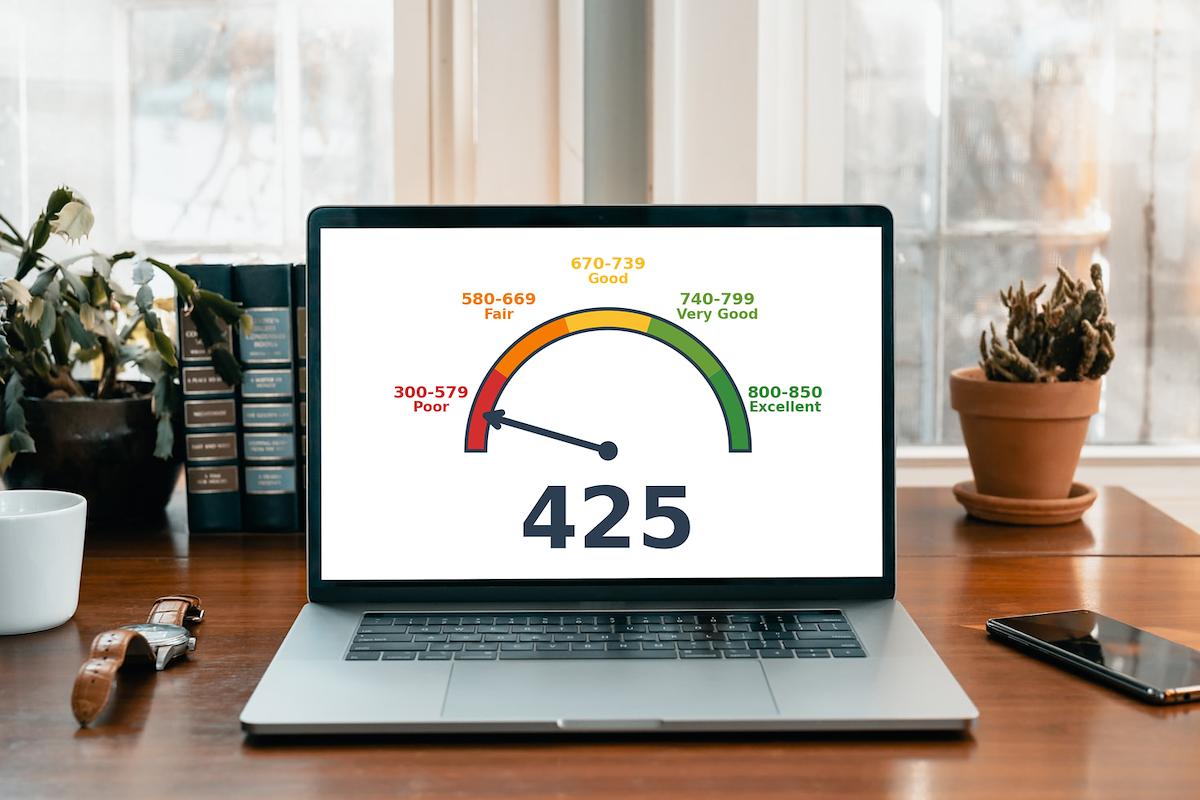
Kudos has partnered with CardRatings and Red Ventures for our coverage of credit card products. Kudos, CardRatings, and Red Ventures may receive a commission from card issuers. Kudos may receive commission from card issuers. Some of the card offers that appear on Kudos are from advertisers and may impact how and where card products appear on the site. Kudos tries to include as many card companies and offers as we are aware of, including offers from issuers that don't pay us, but we may not cover all card companies or all available card offers. You don't have to use our links, but we're grateful when you do!
423 Credit score: What You Need to Know in 2025
July 1, 2025

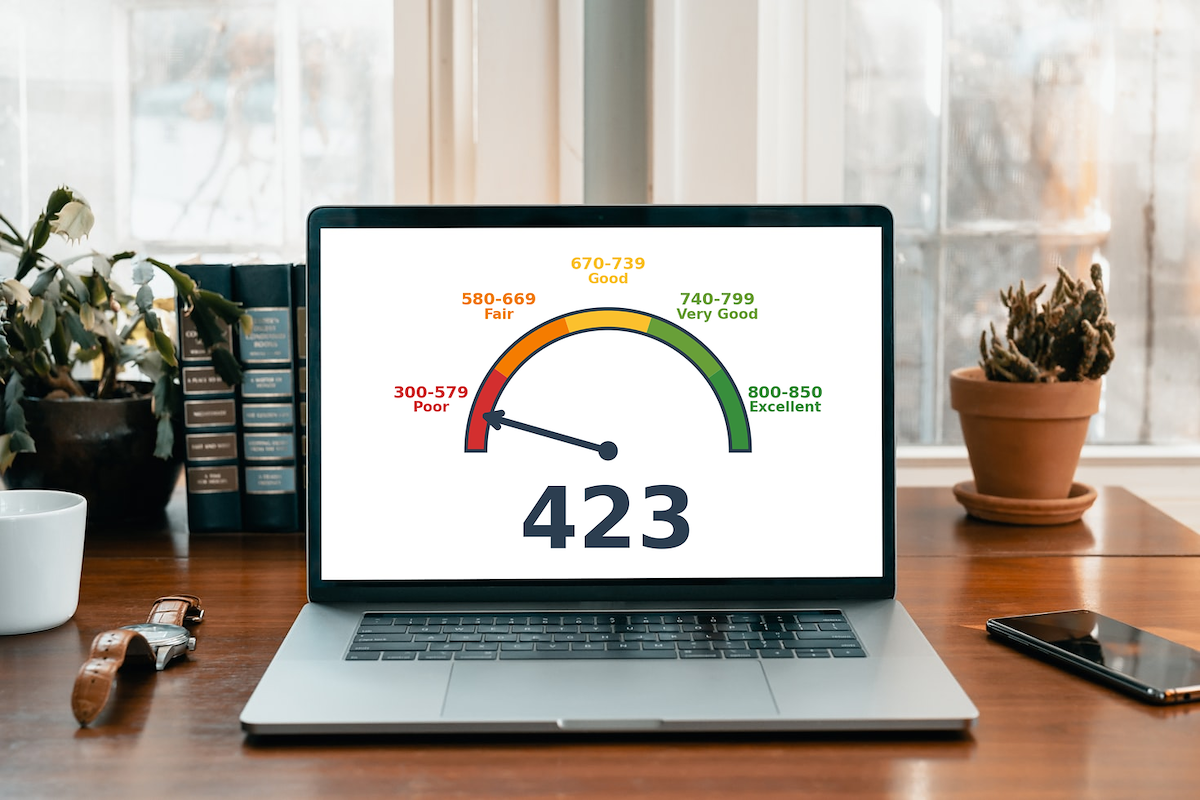
TL;DR
A 423 credit score falls into the “Poor” FICO score category, which presents a clear opportunity for growth. This score can be viewed as a foundational starting point from which to build a stronger financial profile.
What Does a 423 Credit Score Mean?
A credit score of 423 places you squarely in the "poor" range of the FICO Score model, one of the most common systems lenders use to assess risk. With scores ranging from 300 to 850, any score falling below 580 is typically viewed as a sign of significant financial risk, suggesting a history of credit management challenges.
This number will likely have a direct and often difficult impact on your financial life. Securing new lines of credit, whether for a car, a home, or a simple credit card, may prove challenging. If you are approved, you can expect to face high interest rates and strict terms. While this can feel limiting, understanding where you stand is the first step toward building a healthier financial outlook.
Who Has a 423 Credit Score?
While age is not a direct factor in calculating your credit score, there is a clear trend of scores increasing over time. According to 2023 data, the average FICO score varies significantly across different generations:
- Generation Z (ages 18-26): 680
- Millennials (ages 27-42): 690
- Generation X (ages 43-58): 709
- Baby Boomers (ages 59-77): 745
- Silent Generation (ages 78+): 760
Credit Cards With a 423 Credit Score
With a 423 credit score, you'll find yourself in the 'poor' credit range, which signals to lenders that you're a high-risk borrower. Consequently, getting approved for most traditional credit cards will be a significant challenge. The cards you are likely to qualify for will be geared towards those with bad credit, often coming with high interest rates, annual fees, and low credit limits.
Fintech company Kudos offers AI-powered tools that help you find the right credit card by providing personalized recommendations from a database of nearly 3,000 options. By analyzing your preferences or actual spending habits, the service matches you with cards that fit your financial situation, offering insights into rewards, fees, and potential credit score impacts.
Auto Loans and a 423 Credit Score
A 423 credit score places you in the deep subprime category, which can make securing an auto loan challenging. While approval is still possible, you should expect to face significantly higher interest rates than borrowers with better credit.
Based on a 2025 auto loan rate analysis, here are the average interest rates across different credit score brackets:
- Super-prime (781-850): 5.25% for new cars, 7.13% for used cars
- Prime (661-780): 6.87% for new cars, 9.36% for used cars
- Non-prime (601-660): 9.83% for new cars, 13.92% for used cars
- Subprime (501-600): 13.18% for new cars, 18.86% for used cars
- Deep subprime (300-500): 15.77% for new cars, 21.55% for used cars
Mortgages at a 423 Credit Score
With a 423 credit score, qualifying for a traditional mortgage is nearly impossible. Most government-backed loans have minimum score requirements you won't meet. For instance, FHA loans require a score of at least 500. Your only potential avenues might be specialty subprime lenders or alternative financing like rent-to-own, but these options are rare and carry significant risks.
If you find a lender, a 423 score means unfavorable terms. Expect much higher interest rates, adding tens of thousands to the loan's total cost. Lenders will also likely demand a larger down payment and use strict manual underwriting, scrutinizing your income stability and payment history more closely than for applicants with higher scores.
What's in a Credit Score?
Understanding your credit score can feel like trying to solve a complex puzzle, as it's a blend of several key financial habits. The most common factors that determine your score include:
- Your payment history tracks whether you have paid past credit accounts on time.
- Credit utilization is the percentage of your available credit that you are currently using.
- The length of your credit history considers the age of your oldest account and the average age of all your accounts.
- Credit mix refers to the variety of credit products you have, such as credit cards, retail accounts, and loans.
- New credit inquiries and recently opened accounts can also temporarily impact your score.
How to Improve Your 423 Credit Score
Don't be discouraged by a 423 credit score; with consistent effort and proven methods, it's entirely possible to rebuild your credit. Adopting positive financial habits is the key to showing lenders you can manage debt responsibly, with most people seeing meaningful changes within three to six months.
- Monitor your credit reports regularly. This allows you to spot and dispute any inaccuracies or signs of identity theft that could be unfairly dragging your score down.
- Establish automatic bill payments. Since payment history is the single largest factor in your score, ensuring every bill is paid on time is the most critical step to stop your score from falling further and begin rebuilding.
- Reduce your credit utilization ratio. Lenders see high balances as a risk, so paying down your credit card debt to below 30% of your limit shows you can manage credit responsibly and can have a significant positive impact.
- Apply for a secured credit card. This type of card requires a cash deposit as collateral, making it easier to get approved with a low score and allowing you to build a positive payment history.
Using a tool like Kudos can help you manage your cards and maximize rewards as you work to improve your credit.

Supercharge Your Credit Cards
Experience smarter spending with Kudos and unlock more from your credit cards. Earn $20.00 when you sign up for Kudos with "GET20" and make an eligible Kudos Boost purchase.
Editorial Disclosure: Opinions expressed here are those of Kudos alone, not those of any bank, credit card issuer, hotel, airline, or other entity. This content has not been reviewed, approved or otherwise endorsed by any of the entities included within the post.


















